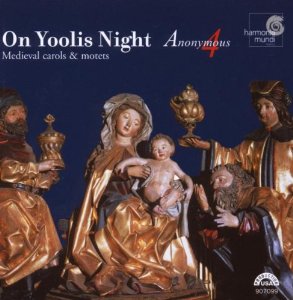
Working on yesterday's article about recent classical Christmas albums and looking back at my original Christmas album article got me thinking about old favorites I hadn't included in my 2005 article. Here they are. It says something about their popularity that they have all stayed available, in some cases for decades.
This gorgeous collection contains Advent and Christmas music from 13th through 15th century English sources -- with one piece traceable all the way back to the 5th century. The ethereal beauty of these devotional antiphons, motets, carols, etc. is about as far from the usual hackneyed Christmas carols as one could get. Some of the Latin texts are familiar (Hodie Christus natus est, Ave maria, Videntes stellam), but this is largely fresh, relatively unexplored repertoire.
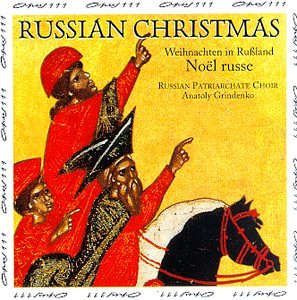 Russian Patriarchate Choir/Anatoly Grindenko
Russian Patriarchate Choir/Anatoly GrindenkoThis is no cheesy Red Army Chorus holiday collection, but insteada selection of chants -- found in 16th and 17th century manuscripts found in four monasteries --from the Russian Orthodox liturgical cycle for the Vigil of the Nativity of Christ. It's nothing like Western polyphony; serpentine melodies and striking dissonances abound. The variety is striking, from monophonic (one melody line only) chants to different degrees of polyphony ranging from a melody plus a drone to intricately and sometimes dissonantly intertwining multiple voice parts. Russian chant is a unique musical style that reflects the combination of Russian and Byzantine elements. When sung with the controlled gusto heard here, it's intoxicating.
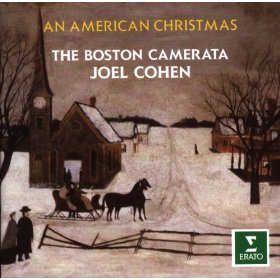 Boston Camerata/Joel Cohen
Boston Camerata/Joel CohenThe Boston Camerata has made a half-dozen superb Christmas albums focusing on different periods or countries, but for American listeners, this one has an obvious appeal. With a mix of traditional favorites and lesser known carols, hymns, and spirituals from 1770 to 1870, this winningly programmed seasonal treasure has been a perennial favorite since its appearance. The pieces are grouped by six topics; sometimes humble, often ethereal, the many folk-like arrangements are refreshingly natural and unpretentious, balanced by a few European imports popular with the colonists (two Handel tunes, etc.).
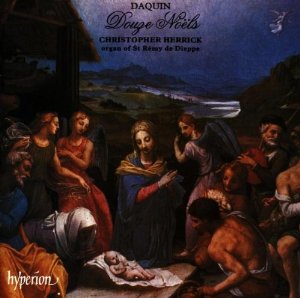 Christopher Herrick
Christopher HerrickThe 12 Noëls for organ by Louis-Claude Daquin (1694-1772) are among the most charmingly glitzy works of the French Baroque (which is really saying something). Daquin was a virtuoso prodigy who got his first organist post at age 12 and later outplayed Rameau in a competition. These ornate elaborations of French Noëls (some tunes will be familiar even to non-French listeners) are tuneful, rhythmically graceful, and, when played on an appropriate French instrument -- such as the organ of St. Rémy, Dieppe, built in 1739 by Claude Parizot, used on this recording -- highly colorful, with the variety of timbres enhancing the increasingly elaborate variations Daquin often favors.
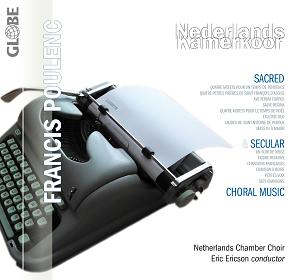 Netherlands Chamber Choir/Eric Ericson
Netherlands Chamber Choir/Eric EricsonThe motets of French composer Poulenc (1899-1963) contain some of the most ethereal choral writing in the repertoire (he also wrote a set for Lent, also included on Ericson's two-CD set of Poulenc's complete unaccompanied choral music). His settings of four familiar liturgical texts -- "O magnum mysterium," "Quem vidistis pastores dicite," "Videntes stellam," and "Hodie Christus natus est" -- offers four contrasting, complementary moods. His marvelous voice-leading makes the difficult harmonies a bit easier to sing (although downward tritone leaps are hard no matter what!).
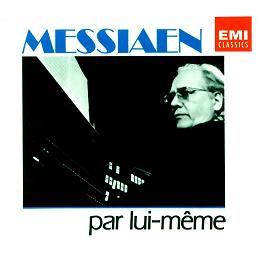 Olivier Messiaen
Olivier MessiaenSubtitled 9 Meditations, this cycle depicts the shepherds, the angels, the Magi, etc. (with specific Biblical citations attached to each piece), but also offers profound evocations of mood -- the listener can nearly smell the incense -- and masterful deployment of the brilliant timbres associated with the French style of organ playing. This work is only one disc in a four-CD set, but one can't pass up the opportunity to hear the composer playing (in 1956) the magnificent Cavaillé-Coll organ of the Church of the Holy Trinity in Paris, at which Messiaen (1908-1992) was organist for decades.
